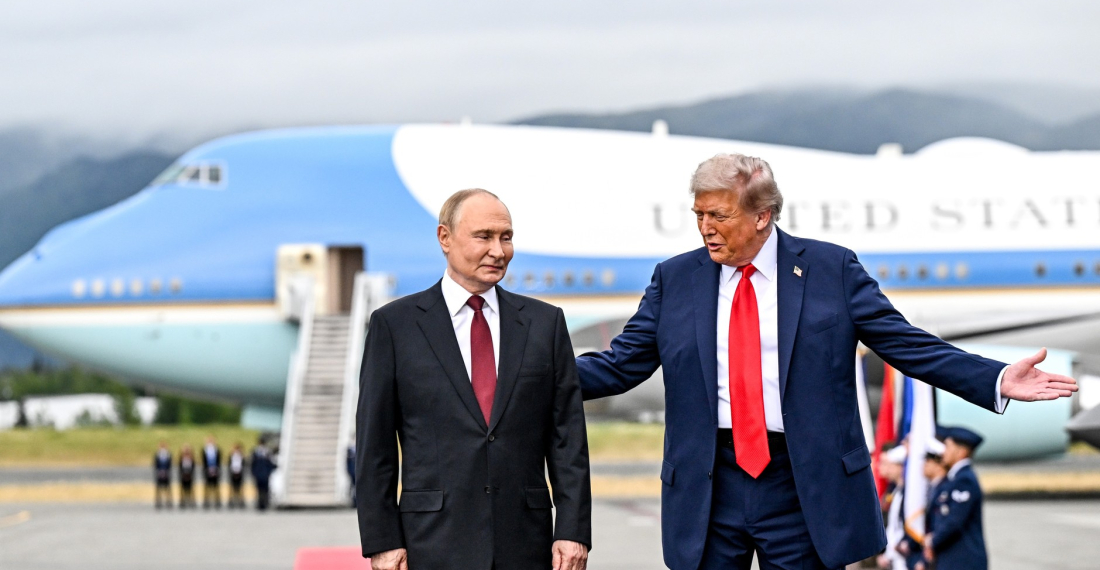On Friday (15 August), in a high-profile meeting hosted at Joint Base Elmendorf‑Richardson in Anchorage, President Donald Trump rolled out the full presidential welcome, red carpet, jet flyovers, and limousine pomp for Vladimir Putin. Despite the grandeur, the summit wrapped up in three hours without any agreement to end Russia’s war in Ukraine.
Both leaders described the meeting with optimistic language, yet neither side offered concrete steps toward peace. Trump called it “great progress,” while Putin praised a new “understanding.” Trump argued rather vaguely that there is a “very good chance of getting there”, referring to a ceasefire; however, there is disagreement on at least “one significant point”. He stressed that the decision rests with Putin and Ukrainian President Volodymyr Zelenskyy, adding: “There’s no deal until there’s a deal.”
For Putin, the summit represented a symbolic but potent diplomatic victory. It marked his return to U.S. soil and provided him with a rare moment of visibility on the Western stage. Still, he held firmly to his conditions on Ukraine: excluding NATO membership, enforcing demilitarisation, and maintaining control over occupied regions, showing no signs of compromise.
Notably absent from the Alaska talks was Ukrainian President Volodymyr Zelenskyy. While both Ukraine and the European Countries protested this decision, arguing that the meeting would have unjust results, Zelenskyy was not offered a place or a voice at the negotiation table. This reinforces the growing concern in Europe: peace is being shaped with the aggressor for Ukraine, rather than with Ukraine.
At the end of the meeting, the US leader said he would convene a call with NATO officials and Zelenskyy to discuss the meeting.
While Trump rated the talks as a “10 out of 10”, the meeting did not translate into concrete measures or novel proposals. Until Ukraine is central, not sidelined, and until talks move beyond symbolism to substance, these high-profile meetings risk becoming little more than performances amid a war that continues relentlessly.
Source: commonspace.eu with agencies.






